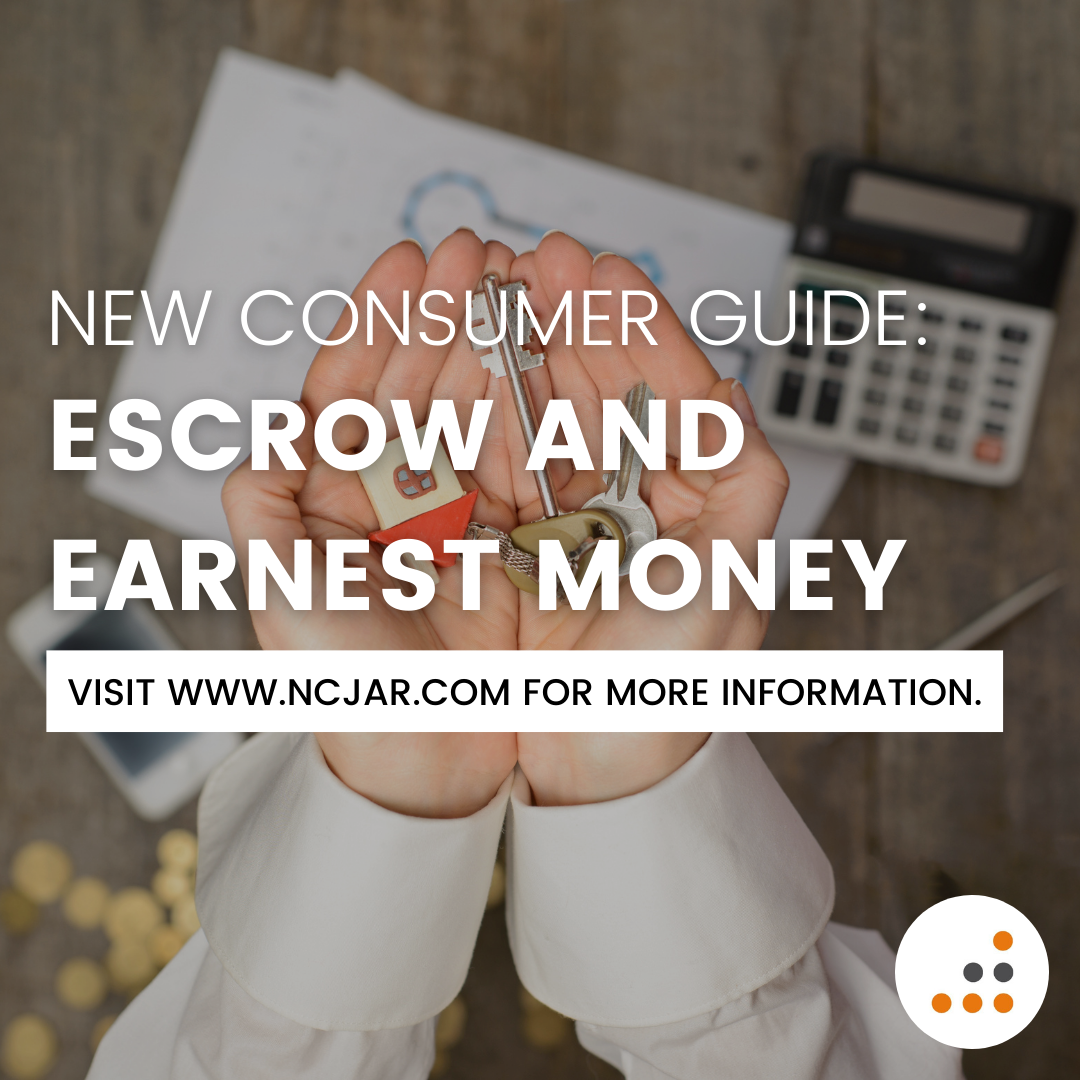 For many homebuyers, the journey from signing a contract to closing on their dream home includes navigating an important step: depositing money into an escrow account. Working with a REALTOR® can make this process smoother, as they can guide you on making a strong offer while safeguarding your deposits. Here's what you need to know about escrow and earnest money.
For many homebuyers, the journey from signing a contract to closing on their dream home includes navigating an important step: depositing money into an escrow account. Working with a REALTOR® can make this process smoother, as they can guide you on making a strong offer while safeguarding your deposits. Here's what you need to know about escrow and earnest money.
What is Escrow?
Escrow is a financial arrangement where a neutral third party, such as an attorney or a settlement agent, holds funds until all the terms of the contract are met. For buyers, this means that the money deposited into escrow will often go toward your down payment or closing costs once the deal is finalized.
Escrow accounts can also be used to cover other costs, such as property taxes and insurance premiums, ensuring these expenses are managed seamlessly. This safety net helps protect both buyers and sellers throughout the transaction.
What is Earnest Money?
Earnest money, also known as a “good faith deposit,” is paid by the buyer to show they are serious about purchasing the home. This deposit is typically a percentage of the home’s purchase price or a fixed amount agreed upon during negotiations.
Unlike a down payment, earnest money is not applied directly to the purchase price but is held securely in an escrow account until the sale is finalized or a resolution is reached in the case of disputes.
The purpose of this deposit is to demonstrate the buyer’s commitment to the transaction and provide the seller with reassurance that the buyer intends to follow through with the purchase.
What Happens to Earnest Money if the Sale Falls Through?
- If the Seller Cancels the Sale: The earnest money is refunded to the buyer.
- If Contingencies Cannot Be Resolved: Contingencies in the contract, such as home inspections, appraisals, or financing approvals, serve as safeguards for buyers. If these are not met, the buyer can typically recover their earnest money.
- If the Buyer Cancels Without Just Cause: In cases where the buyer fails to meet contract terms, waives contingencies prematurely, or abandons the transaction without valid reasons, the seller may keep the earnest money deposit.
It’s essential to work with your agent and legal professionals to understand the terms of your contract, ensuring your money and the transaction are protected.
Is Earnest Money Required?
While there are no legal requirements for earnest money, it is a common practice in many real estate markets. Sellers may favor offers that include earnest money, particularly in competitive markets or when the buyer is putting less than 20% down. Discuss with your REALTOR® whether including an earnest money deposit makes sense for your situation.
How Much Earnest Money Should You Offer?
Earnest money deposits typically range from 1% to 10% of the home’s purchase price. Factors like market competitiveness, the seller’s preferences, and whether your offer includes contingencies can influence the amount. Fixed amounts, rather than percentages, are also becoming more common in certain areas.
Risks and Safeguards When Using Escrow Accounts
While escrow accounts are designed to protect your funds, there is still a risk of fraud, particularly during the wire transfer process. Here are some steps to protect yourself:
- Verify Wire Instructions: Always confirm wire transfer details in person or over the phone with your lender, bank, or escrow agent before sending funds.
- Avoid Email Fraud: Be cautious of emails requesting changes to wire instructions. Scammers often pose as legitimate parties to redirect funds.
- Educate Yourself: Your REALTOR® can provide resources and tips to help you avoid wire fraud scams. You can also visit NAR’s resource on protecting your money for additional guidance.
Work with a REALTOR® for Peace of Mind
Navigating escrow and earnest money deposits can feel overwhelming, but having a REALTOR® on your side ensures you’re making informed decisions. They’ll help you craft a competitive offer while protecting your financial interests, making the path to homeownership smoother and more secure.
Have questions about escrow, earnest money, or the home-buying process? Reach out to NCJAR for expert guidance and support from a trusted REALTOR®.